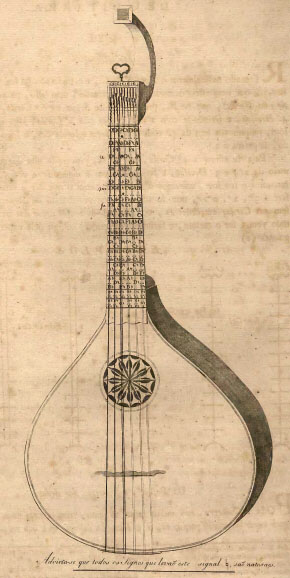|
Ruth Garcês
Ruth Garcês (1934–2006) was a Portuguese lawyer, magistrate and judge. She was the first female magistrate and the first female judge in Portugal. She founded the Portuguese Association of Women Judges. Born in Lourenço Marques in Mozambique in 1934, Garcês (also written as Garcez and Garcêz) graduated in Law from the University of Coimbra in 1956. After completing her studies, she returned to Mozambique, practicing there for two decades. After the Independence of Mozambique in 1975 she settled permanently in Portugal and, in 1977, began to work as a magistrate after a competitive exam that, prior to the Carnation Revolution in 1974, had only been open to men. In 1993, she was made a judge at the Lisbon Court of Appeal. A Fado singer in her spare time, Garcês retired from the judiciary in 2005 after reaching the age limit of seventy. A year before her retirement she had competed for a position on the Portuguese Supreme Court (). She attributed her failure to gain a seat t ... [...More Info...] [...Related Items...] OR: [Wikipedia] [Google] [Baidu] |
Portuguese Mozambique
Portuguese Mozambique () or Portuguese East Africa () were the common terms by which Mozambique was designated during the period in which it was a Portuguese Empire, Portuguese overseas province. Portuguese Mozambique originally constituted a string of Portuguese possessions along the south-east African coast, and later became a unified province, which now forms the Republic of Mozambique. Portuguese trading settlements—and later, territories—were formed along the coast and into the Zambezi basin from 1498 when Vasco da Gama first reached the Mozambican coast. Lourenço Marques (explorer), Lourenço Marques explored the area that is now Maputo Bay in 1544. The Portuguese increased efforts for occupying the interior of the colony after the Scramble for Africa, and secured political control over most of its territory in 1918, facing the resistance of some Africans during the process. Some territories in Mozambique were handed over in the late 19th century for rule by chartered ... [...More Info...] [...Related Items...] OR: [Wikipedia] [Google] [Baidu] |
Order Of Liberty
The Order of Liberty, or the Order of Freedom (), is a Portuguese honorific civil order that distinguishes relevant services to the cause of democracy and freedom, in the defense of the values of civilization and human dignity. The order was created in 1976, after the Carnation Revolution of 1974 in which the corporatist authoritarian '' Estado Novo'' regime of António de Oliveira Salazar and Marcello Caetano was deposed. The Grand Collar can also be given by the President of Portugal to former Heads of State and others whose deeds are of an extraordinary nature and particular relevance to Portugal, making them worthy of such a distinction. This can include political acts, physical acts of defense for Portugal, or the good representation of Portugal in other countries. Grades The order includes six classes; in decreasing order of seniority, these are: [...More Info...] [...Related Items...] OR: [Wikipedia] [Google] [Baidu] |
People From Leiria District
The term "the people" refers to the public or common mass of people of a polity. As such it is a concept of human rights law, international law as well as constitutional law, particularly used for claims of popular sovereignty. In contrast, a people is any plurality of persons considered as a whole. Used in politics and law, the term "a people" refers to the collective or community of an ethnic group or nation. Concepts Legal Chapter One, Article One of the Charter of the United Nations states that "peoples" have the right to self-determination. Though the mere status as peoples and the right to self-determination, as for example in the case of Indigenous peoples (''peoples'', as in all groups of indigenous people, not merely all indigenous persons as in ''indigenous people''), does not automatically provide for independent sovereignty and therefore secession. Indeed, judge Ivor Jennings identified the inherent problems in the right of "peoples" to self-determination, as i ... [...More Info...] [...Related Items...] OR: [Wikipedia] [Google] [Baidu] |
Portuguese Women Lawyers
Portuguese may refer to: * anything of, from, or related to the country and nation of Portugal ** Portuguese cuisine, traditional foods ** Portuguese language, a Romance language *** Portuguese dialects, variants of the Portuguese language ** Portuguese man o' war, a dangerous marine animal ** Portuguese people, an ethnic group See also * * ''Sonnets from the Portuguese'' * "A Portuguesa", the national anthem of Portugal * Lusofonia * Lusitania Lusitania (; ) was an ancient Iberian Roman province encompassing most of modern-day Portugal (south of the Douro River) and a large portion of western Spain (the present Extremadura and Province of Salamanca). Romans named the region after th ... * {{disambiguation Language and nationality disambiguation pages ... [...More Info...] [...Related Items...] OR: [Wikipedia] [Google] [Baidu] |
2005 Deaths
This is a list of lists of deaths of notable people, organized by year. New deaths articles are added to their respective month (e.g., Deaths in ) and then linked below. 2025 2024 2023 2022 2021 2020 2019 2018 2017 2016 2015 2014 2013 2012 2011 2010 2009 2008 2007 2006 2005 2004 2003 2002 2001 2000 1999 1998 1997 1996 1995 1994 1993 1992 1991 1990 1989 1988 1987 1986 Earlier years ''Deaths in years earlier than this can usually be found in the main articles of the years.'' See also * Lists of deaths by day * Deaths by year (category) {{DEFAULTSORT:deaths by year ... [...More Info...] [...Related Items...] OR: [Wikipedia] [Google] [Baidu] |
1934 Births
Events January–February * January 1 – The International Telecommunication Union, a specialist agency of the League of Nations, is established. * January 15 – The 8.0 1934 Nepal–Bihar earthquake, Nepal–Bihar earthquake strikes Nepal and Bihar with a maximum Mercalli intensity scale, Mercalli intensity of XI (''Extreme''), killing an estimated 6,000–10,700 people. * February 6 – 6 February 1934 crisis, French political crisis: The French far-right leagues rally in front of the Palais Bourbon, in an attempted coup d'état against the French Third Republic, Third Republic. * February 9 ** Gaston Doumergue forms a new government in France. ** Second Hellenic Republic, Greece, Kingdom of Romania, Romania, Turkey and Kingdom of Yugoslavia, Yugoslavia form the Balkan Pact. * February 12–February 15, 15 – Austrian Civil War: The Fatherland Front (Austria), Fatherland Front consolidates its power in a series of clashes across the country. * February 16 – The ... [...More Info...] [...Related Items...] OR: [Wikipedia] [Google] [Baidu] |
Jorge Sampaio
Jorge Fernando Branco de Sampaio (; 18 September 1939 – 10 September 2021) was a Portuguese lawyer and politician who was the 18th President of Portugal from 1996 to 2006. Sampaio was a member of the Socialist Party, a party which he led between 1989 and 1992. He served as the Mayor of Lisbon from 1990 to 1995 and High-Representative for the United Nations' Alliance of Civilizations between 2007 and 2013. Sampaio was an opponent to the dictatorship of Estado Novo. He participated in the student crisis in the 1960s and worked as a lawyer for political prisoners. During his presidency, Portugal relinquished its last colony, Macau, to China. Sampaio also played an important role in the 1999 East Timorese crisis. Early life Sampaio was born in Lisbon on 18 September 1939 into a middle-class family. The Sampaio family lived in the United States and the United Kingdom for some years due to the professional activity of his father Arnaldo Sampaio (1908–1984), a physicia ... [...More Info...] [...Related Items...] OR: [Wikipedia] [Google] [Baidu] |
Supreme Court Of Justice (Portugal)
The Supreme Court of Justice (, , STJ) is the highest court of law in Portugal without prejudice to the jurisdiction of the Constitutional Court. The judges of the STJ are referred to as "counselors" (''conselheiros''). Its president is elected by and from among the judges of the court. The STJ is installed in the buildings of the northern wing of the '' Terreiro do Paço'' square in Lisbon. Competences The competences of the Supreme Court of Justice are the following: *To try the President of Portugal, the President of the Assembly of the Republic and the Prime Minister of Portugal for crimes committed during the exercise of their office; *To harmonize rulings by setting uniform jurisprudence; *To hear appeals in matters of law; *To try crimes committed by the members of the Supreme Court, of the Courts of Appeal or Public Prosecutors. History The Supreme Court of Justice was created by the Constitution of 1822 and installed eleven years after, in the scope of the separatio ... [...More Info...] [...Related Items...] OR: [Wikipedia] [Google] [Baidu] |
Porto De Mós
Porto de Mós () is a town and a municipality of Estremadura province in Leiria District. It is in the Centro Region and the Pinhal Litoral subregion. The population in 2011 was 24,342, in an area of 261.83 km2. There were archeologic findings which link São Jorge, in the parish of Calvaria de Cima, as the exact place where the Battle of Aljubarrota was fought, crucial for maintaining the independence of Portugal in 1385. Currently, there is an interpretation center on the spot (Centre of Interpretation of the Battle of Aljubarrota) which helps visitors explore the battlefield and learn about the most important facts of this battle. In this municipality, you can also find several caves carved in the mountains, the most important being Moinhos Velhos Cave, also known as Mira de Aire Cave. A portion of the Serras de Aire e Candeeiros Natural Park is also located in Porto de Mós municipality. History According to Nazaré's legend, the knight D. Fuas Roupinho, miraculated b ... [...More Info...] [...Related Items...] OR: [Wikipedia] [Google] [Baidu] |
Fado
Fado (; "destiny, fate") is a music genre which can be traced to the 1820s in Lisbon, Portugal, but probably has much earlier origins. Fado historian and scholar Rui Vieira Nery states that "the only reliable information on the history of fado was orally transmitted and goes back to the 1820s and 1830s at best. But even that information was frequently modified within the generational transmission process that made it reach us today." Although the origins are difficult to trace, today fado is commonly regarded as simply a form of song which can be about anything, but must follow a certain traditional structure. In popular belief, fado is a form of music characterized by mournful tunes and lyrics, often about the sea or the life of the poor, and infused with a sense of resignation, fate and melancholy. This is loosely captured by the Portuguese language, Portuguese word ''saudade'', or longing, symbolizing a feeling of loss (a permanent, irreparable loss and its consequent lifelon ... [...More Info...] [...Related Items...] OR: [Wikipedia] [Google] [Baidu] |



